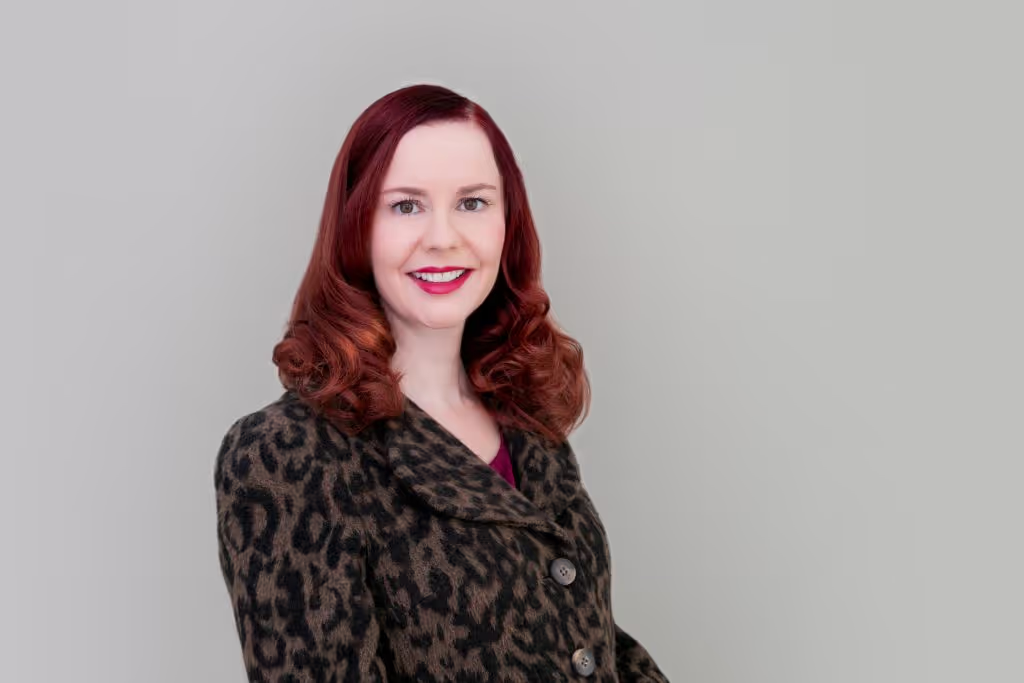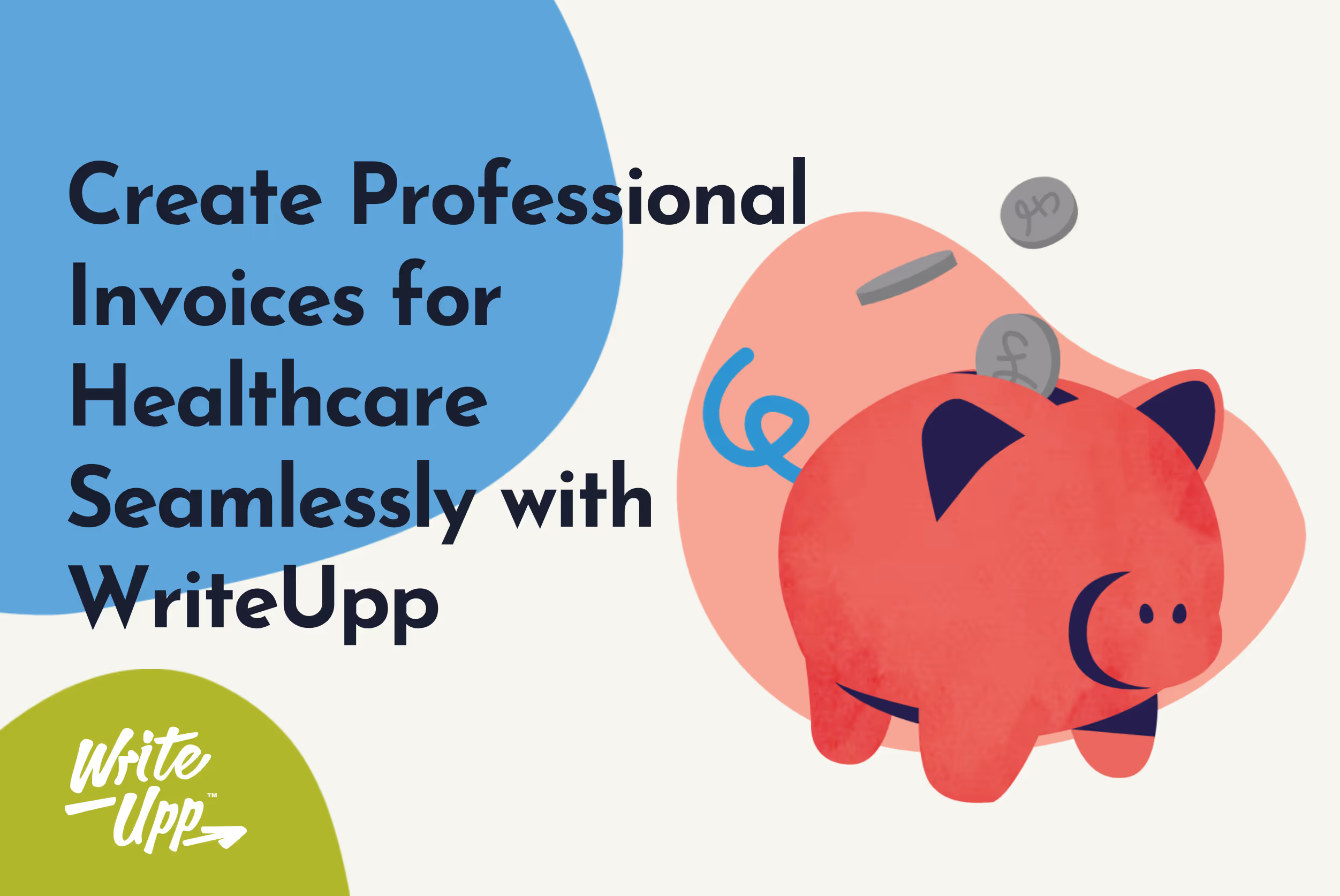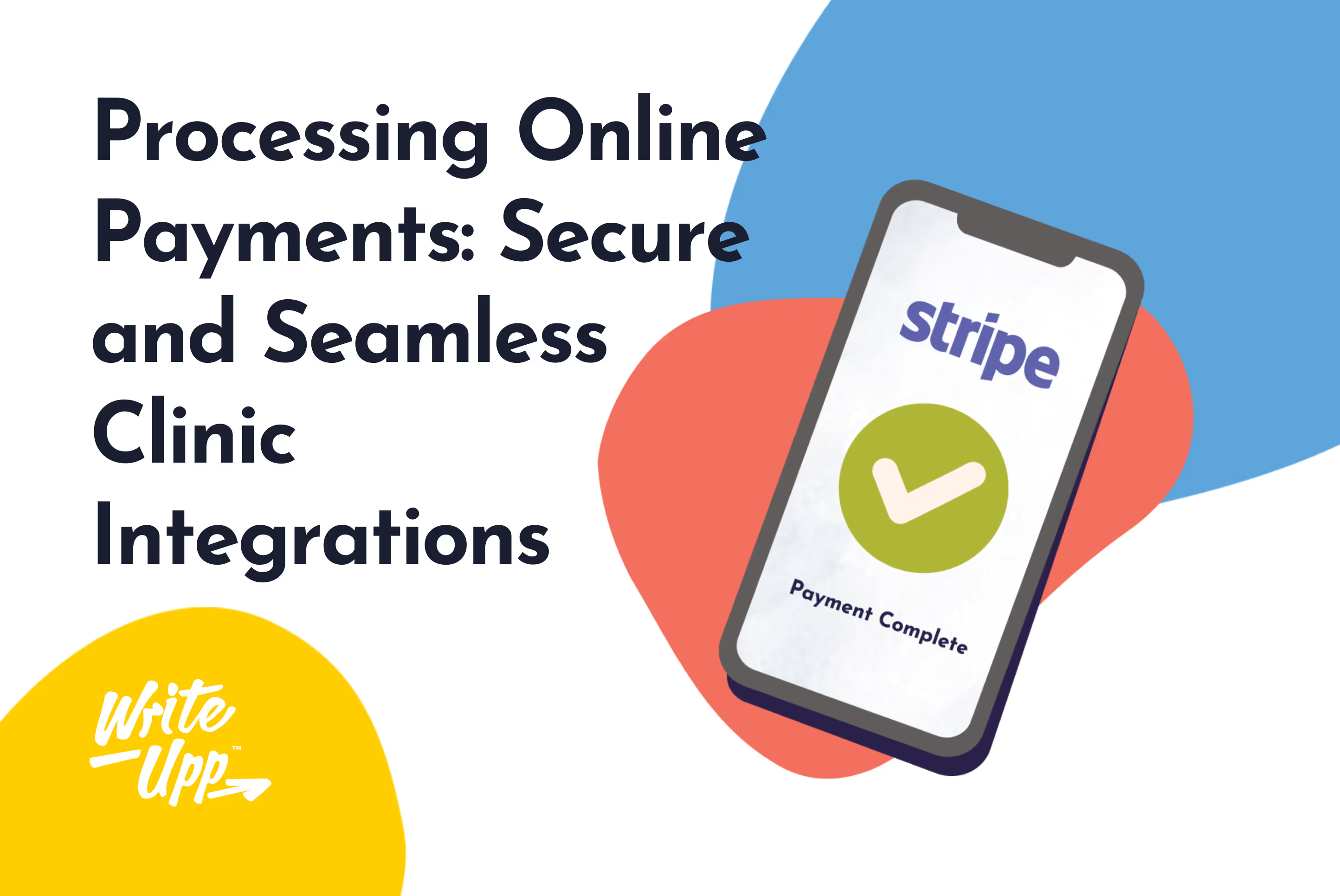During a recent episode of WriteUpp's Healthy Practice podcast, we had the pleasure of interviewing Margaret Reiser, a therapeutic counsellor based in London.
Margaret’s career journey is fascinating because she transitioned from a lawyer to a therapeutic counsellor in her forties. She shared her experience of making such a significant career shift and provided insights on deciding if a major career change is right for you.
In our conversation, we covered:
- Why you might consider a career change
- The financial implications of changing careers
- How long retraining as a counsellor takes
- The overlooked aspects of changing careers
You can listen to the entire conversation here:
https://pod.co/the-healthy-practice/making-a-big-career-change
Welcome to The Healthy Practice, Margaret! We're delighted to have you here. Could you share a bit about yourself?
Thank you, I'm delighted to be here. My name is Margaret Reiser, and I am a therapeutic counsellor and the owner of Sage London Counseling, which I founded in early 2022.
I was born and raised in New York and attended university there too. Upon graduation, I went straight into law school, as many do in the US. After law school, I worked as a prosecutor in Manhattan Family Court, handling abuse and neglect cases. This position was my favourite job as a lawyer. Afterwards, I mainly worked in insurance law and did a brief stint in medical malpractice.
When I moved to London in 2011, I worked for two insurance companies in the city for five years. However, I was deeply unhappy there, and when I was made redundant in 2017, I decided to change my career path entirely. With very little knowledge of how to do it, I enrolled in an introductory counselling course. Over the next four years, I continued studying and eventually became a therapeutic counsellor.
Today, I love my work, and I mainly work with private clients online. Deciding to change careers was the best professional decision ever and one of the best personal decisions. I want to show people that if I could do it in my forties, they can too. The hardest part was making the decision to change. But once you do it, it's liberating.
My two biggest challenges were tuning out others' opinions and starting from scratch. You have to leave your ego at the door and start with the basics. That's humbling but necessary!
Could you tell us about your decision to move to London?
The decision to move to London was made somewhat naively. My husband got a job offer, and we thought it would be a three-year stint. However, one thing led to another, and before I knew it, we were on a plane with our two very young kids.
It was overwhelming, but now, over a decade later, I'm still here, and I'm a British citizen.
The biggest difference between working in the UK compared to the US is the attitude toward holidays or vacations. In the US, many people fear taking time off in case someone else takes their job. In the UK, it's understood that you need time off to reconnect with your family and yourself and maintain your sanity. It's one of the best things about being here.
What made you consider a career change into therapy?
In my first job, I worked for the city, prosecuting abuse and neglect cases. Despite dealing with a lot of backstory in these cases, that backstory is often irrelevant to what you're doing. I found myself curious about everything else happening around me and wished for a world where everyone could sit down and communicate openly.
I became genuinely interested in people's lives, what they were going through, and how it shaped them. However, the legal field didn't provide much opportunity for exploring these aspects. This curiosity sparked a desire within me to do something more meaningful.
What did your friends, family, and colleagues think when you told them about your career change?
Our brains have limited capacity, and people often label us based on what they know about us. In my case, being a lawyer was how they identified me, even though I had expressed my unhappiness with it. Changing this perception can upset the balance for others, and they tend to project their own feelings onto our choices. Some may be unhappy with their own lives but not taking action, leading them to question why we are making a change.
Some people questioned why I would consider doing something different. Some even brought up the financial investment I made in law school as if it should prevent me from pursuing a different path.
I don't want to spend my life in a job that makes me miserable just because I invested in it in the past. It's like the saying, "Don't throw good money after bad," you know? There's no point in continuing to invest in something with diminishing returns.
I realised that I had the opportunity to make a change, rather than staying in jobs where I spend all day reviewing long, tedious insurance policies. It wasn't the right fit for me, and I knew I couldn't do it forever.
Some people handle it well, and I respect that, but for me, it was a clear sign that I needed to take action now. It felt like everything was telling me this was the right time to make a change, and I didn't want to regret not doing it later. So, I went for it.
How did you know such a big career change would be right for you?
I know it might sound cliché, like when people say they just knew they were in love, but that's how I felt about this career change. I had a strong intuition that I would be good at it and that I could genuinely help people.
Every day, I strive to make a positive impact, and once I made the decision, it brought immense relief. It was like an internal knowing that I was on the right path.
The challenges I've faced in life, including moving here, have taught me valuable lessons about what I want from life. With age, you gain clarity about what you want. My forties were a wonderful decade. I'm still holding onto it, but being in the right profession fulfils me. I feel like I'm exactly where I'm meant to be.
What were the financial implications when you moved career paths?
That's an excellent question because obtaining this qualification involves paying for it.
As part of the training, I had a placement at an agency called Headstrong, which offers low-cost therapy for young people. The requirement was to complete 250 therapeutic hours, working for free. While it can be challenging, this is how the setup works, and it can be tough to come to terms with putting in so much effort without being compensated for it.
I was fortunate enough to have sufficient financial resources and support to do this. Some of my peers retained their jobs while undergoing the training - I applaud their effort. But this is a challenging path involving a lot of unpaid time.
Deciding to change careers doesn't mean abruptly quitting your job. It might require substantial planning and financial preparations. You might have to account for retraining costs or periods of unpaid work. These factors need to be seriously considered in your planning process.
How long did it take to become a qualified therapist from start to finish?
The entire process took four years. I started in February 2018 and became a qualified counsellor in 2021.
My training started with an introductory counselling course, and I gradually moved up. The initial stages of the course were very basic, like what you would learn in grade school. As you progress, you also undergo personal therapy, another expense. However, the therapy hours were invaluable. They were where I learned the most.
Are there any skills you learned as a lawyer that benefit you now as a therapist?
Absolutely. I've observed in my practice that people tend to get deeply entangled in their narratives, holding onto past events, like what their sister did five years ago. While acknowledging these stories is important, some get stuck in them. As a lawyer, I learned how to pinpoint critical issues, and I believe I can still do that effectively. When I have a pile of papers in front of me, I can quickly identify the ones we need to address.
In therapy, I wanted to be more interactive rather than just nodding and asking how my clients feel, which is a common approach. So I draw from my legal background to engage with my clients actively. I believe it's essential to be there with them throughout the process.
What do you think holds people back from changing careers, and what advice do you have?
People, especially women of my generation, struggle to say no to opportunities considered to be good. When you're not enjoying your work, it's essential to consider whether this is how you want your life to continue. It's about making conscious decisions rather than just going through the motions.
We should regularly check in with ourselves and assess if we're happy with our current work. It might not be an immediate transition. It might require years of training, but being true to oneself is essential.
And remember, change can be done, and it's okay to feel uncomfortable with the uncertainty that comes with it.
What should we do when doubtful about our current career path, and who should we talk to?
Long-term confusion is often fear in disguise. So, if you're unsure about your career, try to identify the source of that fear. Assess if there is concrete evidence supporting these fears and whether it is justified or not.
My advice would be to talk to a therapist or someone who has successfully navigated a career change before. Reflect on the thoughts or issues occupying your mind. Think about what you want to change by the end of the year and take steps to resolve it.
If I can do it, you can too!

That was our conversation with the amazing Margaret Reiser. You can find Margaret:
On Instagram: @sagelondoncounselling
On her website: www.sagelondoncounselling.co.uk.
She’s also contributed to a HuffPost column called Love Stuck.
Check out www.writeupp.com for your practice's software solutions and start your free 30-day trial. No payment details are required.



Join over 50,000 clinicians that we've helped using WriteUpp
Start my free trial






